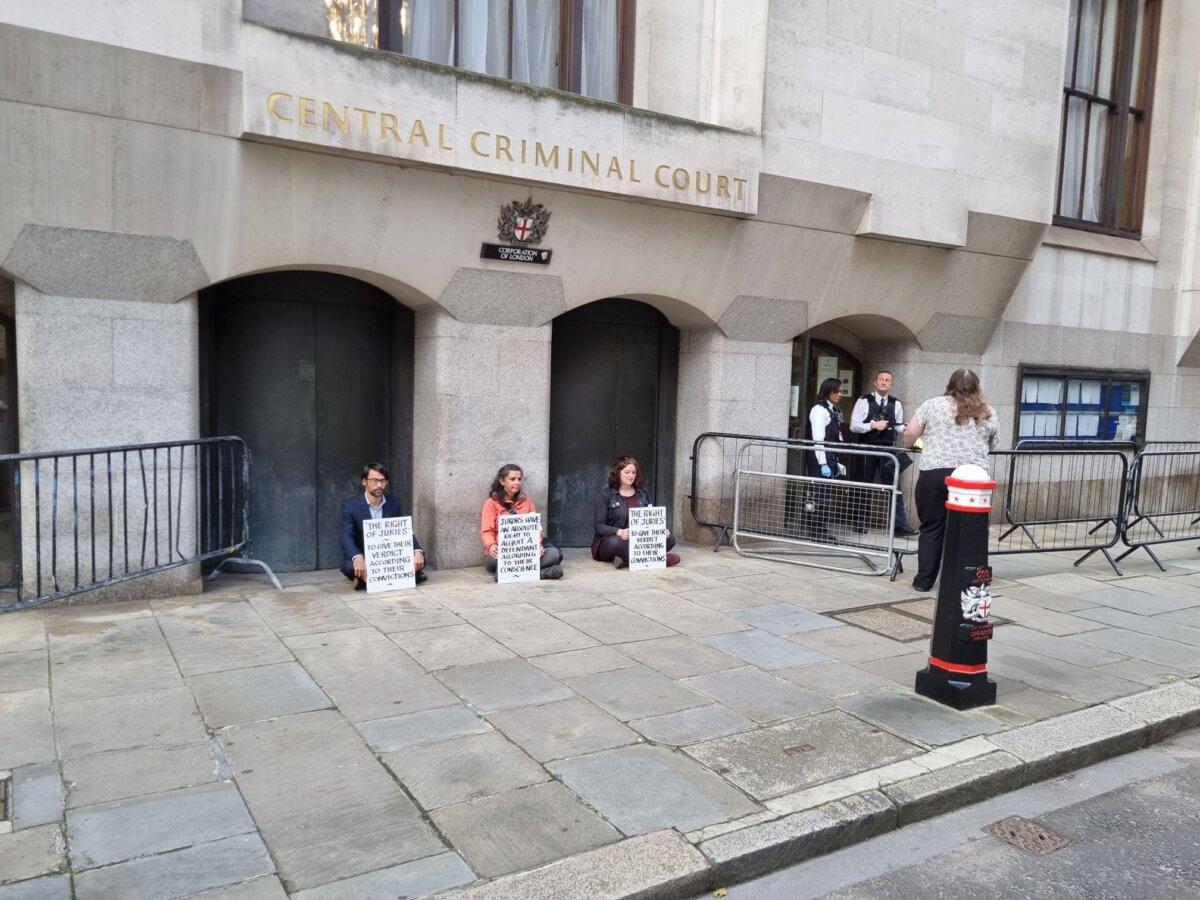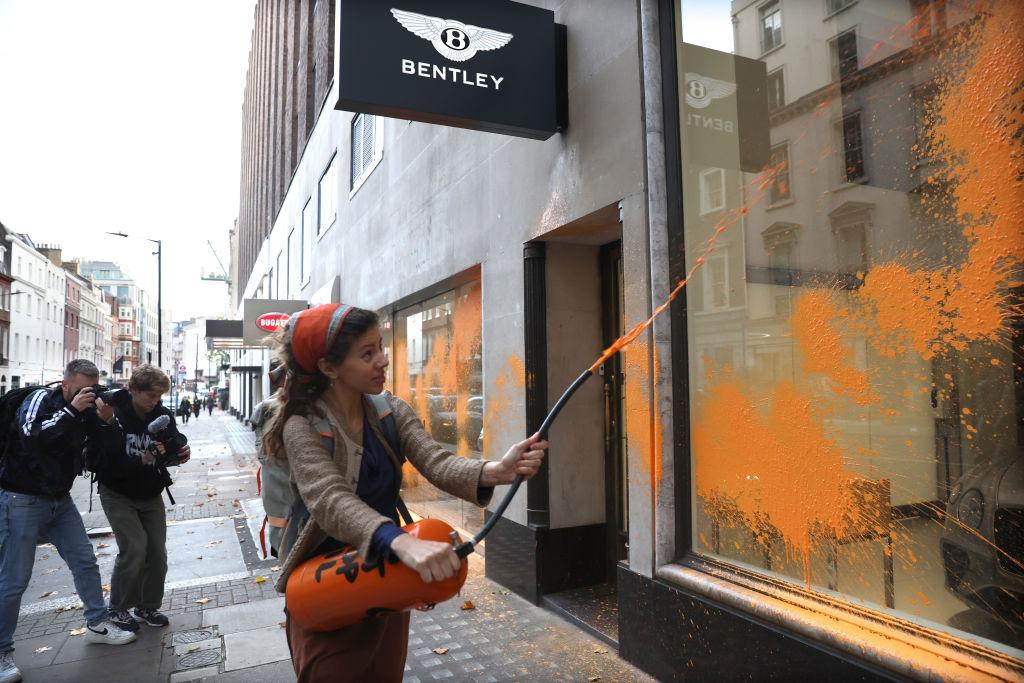Climate change activists should not have “carte blanche” to damage property and then walk free because the scope of their defences in court are drawn “too broadly,” the Court of Appeal in London has been told.
Attorney General Victoria Prentis is challenging the defence used by a climate change protester who was acquitted after a trial last year.
Ms. Prentis ordered a review of how the law was applied last December, saying it was “important that the law is clear and fairly applied.”
The individual, who can only be identified as XX for legal reasons, claimed they honestly believed the property owner would have consented to the damage they caused if they had been fully aware of the full impact of climate change.
Tom Little, KC, representing the Attorney General’s Office, said XX’s defence had been used “wrongly” and should not be available to activists facing criminal damage charges in future.
Referring to the law, Mr. Little said: “We submit that it is being used in a way that was not envisaged and indeed was not intended by Parliament. It leads to the conclusion that this law is being interpreted too broadly and in reality wrongly.”
No ‘Freewheeling’ Right to Protest
Mr. Little said the law can protect the right to protest but “not in a totally freestanding or freewheeling way,” and should not offer “carte blanche” for property to be damaged.In written arguments he stated, “Even if the merits, urgency or importance of a religious, political or moral cause were capable in principle of being ‘circumstances’, contrary to the Attorney General’s primary submission, they would be too remote from the damage caused in any case of direct action to constitute ‘circumstances’ of the damage.”
Henry Blaxland, KC, representing XX, said it was “a matter for the jury” whether they believed the defendant honestly held an opinion, and he said to take that decision away from jurors was “a line that cannot be crossed.”
‘Not for the Jury to Determine Whether the Belief Has Merit’
Mr. Blaxland said: “The consequence is that where the defence was raised, the sole question of fact for the jury is whether the defendant had an honest belief that the owner of the property would have consented to the damage caused. It is not for the jury to determine whether the belief has merit.”“It is a question of whether or not the defendant genuinely believed it,” he added.

Tim Crosland, director of the climate charity Plan B, said: “The attorney general is trying to remove the last line of defence. The impact of that will be juries don’t get to hear about people’s motivations.”
“Stopping a jury from hearing why people did what they did does not help the jury decide where the boundaries are and whether an action is justified,” he added.
A group of climate change protesters staged a sit-in demonstration at the Royal Courts of Justice during Wednesday’s hearing.
The Lady Chief Justice Baroness Carr, who heard the case with Lord Justice William Davis and Mr. Justice Garnham, said they would pass judgment later in the year.
Baroness Carr said: “We know how important this case is and we know its importance to many people, for different reasons. We will get on with it as quickly as we can, but there is a lot for us to think about.”
Regardless of the outcome of the appeal, XX’s acquittal cannot be overturned.







